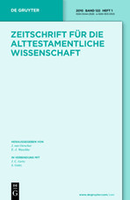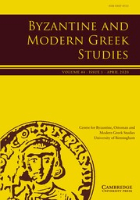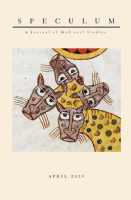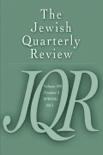
Jahrbuch der Oesterreichischen Byzantinistik
Scope & Guideline
Advancing Byzantine scholarship with every issue.
Introduction
Aims and Scopes
- Critical Editions and Textual Analysis:
The journal frequently publishes critical editions of Byzantine texts, offering scholars new insights and access to previously unpublished or under-explored works. - Interdisciplinary Approaches:
Research published in the journal often employs interdisciplinary methodologies, integrating literature, history, archaeology, and theology to explore Byzantine culture comprehensively. - Cultural and Religious Studies:
A significant focus is placed on the religious and cultural dimensions of Byzantine society, including studies on liturgical practices, hagiography, and the interplay between different religious traditions. - Historical Contextualization:
The journal emphasizes the importance of situating Byzantine studies within broader historical contexts, examining the empire's interactions with neighboring cultures and its lasting influences. - Art and Material Culture:
Research on Byzantine art, including iconography, sculpture, and architecture, is a core area, highlighting the aesthetic and symbolic significance of material culture in Byzantine society.
Trending and Emerging
- Digital Humanities and Manuscript Studies:
There is a growing trend towards the application of digital humanities in Byzantine studies, with scholars utilizing digital tools for manuscript analysis and archival research. - Environmental and Societal Interactions:
Research examining the relationships between societies and their environments, such as studies on water management and territorial organization, is on the rise, indicating a shift towards ecological perspectives. - Interreligious Dynamics:
The exploration of interreligious relationships, particularly between Christianity and Islam during the Byzantine period, is becoming increasingly relevant, reflecting contemporary discussions on religious coexistence. - Byzantine Gender Studies:
The examination of gender roles and representations in Byzantine society is emerging as a significant area of focus, offering new insights into the social fabric of the empire. - Global Perspectives on Byzantine Influence:
Scholars are increasingly exploring the global impact of Byzantine culture, including its influence on neighboring regions and cultures, broadening the scope of traditional Byzantine studies.
Declining or Waning
- Political History of the Byzantine Empire:
While political history has been a traditional focus, recent publications suggest a decreasing emphasis on this area, with fewer articles dedicated to political events and figures. - Military Studies:
Research on Byzantine military history appears to be waning, with fewer studies addressing military strategies, campaigns, and their socio-political impacts in recent years. - Classical Influence on Byzantine Literature:
There has been a noticeable decline in the exploration of classical influences on Byzantine literature, as scholars increasingly turn their attention to original Byzantine contributions rather than classical antecedents. - Greek-Roman Continuity Studies:
The exploration of continuity between Greek and Roman traditions within Byzantine culture has diminished, as the focus shifts towards more distinctively Byzantine elements.
Similar Journals

ZEITSCHRIFT FUR DIE ALTTESTAMENTLICHE WISSENSCHAFT
Unveiling the Complexities of Old Testament StudiesZEITSCHRIFT FUR DIE ALTTESTAMENTLICHE WISSENSCHAFT, published by WALTER DE GRUYTER GMBH, stands as a premier platform in the fields of Religious Studies and History, with distinguished rankings of Q1 in Religious Studies and Q2 in History. Established in Germany and active since 1881, this journal has a storied legacy of advancing scholarly dialogue pertaining to the Old Testament and its historical context. With an ISSN of 0044-2526 and an E-ISSN of 1613-0103, it serves as a crucial resource for researchers, professionals, and students, fostering a robust understanding of ancient texts and their significance in contemporary society. Though it does not currently offer open access, its merit is reflected in its Scopus rankings, placing it in the 65th percentile for Religious Studies and the 63rd percentile for History. As this journal continues its publication journey through 2024, it remains dedicated to enriching the academic landscape by publishing original research, critical reviews, and comprehensive studies that illuminate the complexities and nuances of Old Testament scholarship.

Journal for the Study of Judaism
Exploring the Rich Tapestry of Jewish ThoughtJournal for the Study of Judaism, published by BRILL, serves as a vital platform for scholarly discourse in the fields of History, Literature and Literary Theory, and Religious Studies. With a commendable impact factor and ranking in the Q2 and Q3 quartiles across its respective categories, this journal facilitates high-quality research that explores the multi-faceted dimensions of Jewish studies from its inception in 1970 to the present day. For those who engage with the journal, the commitment to rigorous peer-review processes ensures publication of significant articles that advance knowledge and foster discussions within the academic community. As an essential resource for researchers, professionals, and students alike, the journal continues to enrich the understanding of Judaism through esteemed contributions of scholarship and critical analysis. The journal’s rich legacy and commitment to excellence make it an indispensable tool for those seeking to deepen their insight into Jewish studies and its broader implications.

BYZANTINE AND MODERN GREEK STUDIES
Exploring the Rich Tapestry of Greek HeritageBYZANTINE AND MODERN GREEK STUDIES, published by Cambridge University Press, is a premier journal dedicated to the exploration of Byzantine and modern Greek history, literature, culture, and linguistics. With an ISSN of 0307-0131 and an E-ISSN of 1749-625X, the journal has established itself as a significant contribution to the field since its inception in 1975, with converged publication years extending to 2024. It currently holds a commendable ranking in various categories, including Q2 in Cultural Studies and History, as well as Q1 in Literature and Literary Theory, reflecting its academic rigor and impact. Researchers and scholars can access a wealth of knowledge that highlights the intricate connections between Byzantine heritage and modern Greek identity, all while benefiting from the journal's high visibility in indexes such as Scopus, which ranks it favorably within the top percentiles of related fields. The journal's commitment to fostering interdisciplinary dialogue makes it an invaluable resource for those seeking to deepen their understanding and appreciation of Greece's historical and cultural narrative.

Zbornik Radova Vizantoloskog Instituta
Diving Deep into the Nuances of Byzantine LiteratureZbornik Radova Vizantoloskog Instituta is a distinguished open-access journal published by the Institute of Byzantine Studies, Serbian Academy of Sciences and Arts, located in Belgrade, Serbia. Since its inception in 2003, this journal has served as a vital platform for the dissemination of scholarly research in the fields of Classics, History, Linguistics and Language, and Literature and Literary Theory. Although it currently holds a Q4 ranking in the 2023 category quartiles, its commitment to fostering academic discourse and research accessibility is unwavering. The journal features a diverse range of articles that explore the complexities and nuances of Byzantine studies and related disciplines, catering to a broad audience of researchers, professionals, and students dedicated to the humanities. With a focus on both historical context and contemporary perspectives, Zbornik Radova Vizantoloskog Instituta aims to contribute significant insights into the academic community while promoting scholarly interaction on a global scale.

SPECULUM-A JOURNAL OF MEDIEVAL STUDIES
Exploring the Depths of Medieval InsightSPECULUM: A Journal of Medieval Studies, published by University of Chicago Press, stands as a premier academic platform within the field of medieval studies. With an impressive legacy dating back to its inception in 1926, this journal has attracted scholarly contributions that explore the rich tapestry of human experience during the medieval period, encompassing areas such as history, literature, philosophy, cultural studies, and the visual and performing arts. It boasts elite rankings—Q1 in History, Literature and Literary Theory, Religious Studies, and Visual Arts and Performing Arts, with a commendable Q2 in Cultural Studies and Philosophy—attesting to its impact and relevance in academia. Although it is not an open-access journal, the rigorous peer-review process and critical scholarship found within its pages provide invaluable insights for researchers, professionals, and students alike. With a substantial Scopus ranking, ID 0038-7134, and E-ISSN 2040-8072, SPECULUM continues to serve as an essential resource for advancing knowledge and understanding of the medieval world, encouraging interdisciplinary dialogue and scholarly interaction.

Codex Aquilarensis
Cultivating a Rich Dialogue in Arts and HumanitiesCodex Aquilarensis is a distinguished academic journal published by FUNDACION SANTA MARIA REAL, CENTRO ESTUDIOS ROMANICO, specializing in History and Visual Arts and Performing Arts. With an ISSN of 0214-896X and an E-ISSN of 2386-6454, this journal has carved its niche within the scholarly community in Spain, encompassing a range of topics pertinent to its fields of study. Although it currently holds a Q4 category in both History and Visual Arts and Performing Arts as of 2023, it plays a critical role in disseminating important research and insights from 2015 to 2022, contributing to the academic dialogue around these disciplines. While access options are limited, the journal's commitment to enhancing understanding in the arts and humanities makes it a valuable resource for researchers, professionals, and students alike. Its ranking within Scopus further underscores its relevance, positioning it within the competitive landscape of arts and humanities research. Scholars and practitioners interested in historical and artistic studies are encouraged to engage with the content presented by Codex Aquilarensis as it continues to evolve and contribute to the intellectual heritage of the region.

Art-Sanat
Unveiling the Depths of Visual Arts ScholarshipArt-Sanat is a distinguished open-access journal published by the Research Institute of Turkology at Istanbul University, focusing on various facets of art history, visual arts, and cultural heritage. Since its open-access launch in 2017, the journal has been dedicated to promoting scholarly communication and disseminating innovative research within the fields of Art History, Archaeology, and Conservation. With an impact factor that highlights its increasing prominence—ranking in the Q1 quartile for History and Visual Arts and Performing Arts—Art-Sanat provides a platform for researchers, professionals, and students to share high-quality studies. The journal's commitment to transparency and accessibility assures that its contributions are available to a global audience, fostering a community of inquiry in the rich and diverse artistic landscapes of Turkey and beyond. With a robust ranking in Scopus, it stands as a noteworthy resource that advances scholarly engagement and interdisciplinary dialogue in the arts and humanities.

JEWISH QUARTERLY REVIEW
Illuminating Jewish Thought Through Rigorous AnalysisJewish Quarterly Review, published by University of Pennsylvania Press, is a distinguished academic journal that delves into the multifaceted realms of Jewish culture, history, and religious studies. With a rich publication history dating back to 1953 and an impressive track record of rigorous scholarship, this journal maintains a Q2 ranking in key categories such as Cultural Studies, History, and Religious Studies in 2023, placing it among the top-tier journals in its field. The ISSN number 0021-6682 and the E-ISSN 1553-0604 ensure that its scholarship is widely accessible and traceable in academic databases. While the journal is not open access, it remains an essential resource for researchers, professionals, and students seeking in-depth analysis and perspectives on Jewish thought and heritage. The JQR is known for its editorial commitment to enhancing understanding and dialogue across cultural and historical contexts, making it an invaluable asset for anyone engaged in Jewish studies and related disciplines. With its headquarters in Philadelphia, PA, the journal continues to foster scholarly engagement and critical discourse on Jewish identity and experience through its carefully curated articles and reviews.

Konstantinove Listy-Constantines Letters
Connecting the past with contemporary scholarship.Konstantinove Listy - Constantines Letters is a premier academic journal published by the Constantine Philosopher University in Nitra, Slovakia. With a focus on the interdisciplinary exploration of historical, philosophical, and religious studies, this journal has established itself as a significant platform for scholarly discourse since its inception in 2015. The journal's impressive rankings—Q1 in History and Religious Studies, along with Q2 in Philosophy—demonstrate its commitment to high-quality research, concurrent with its strong performance in Scopus rankings, placing it in the 80th percentile for both Religious Studies and History disciplines. As an integral part of the academic landscape, Konstantinove Listy invites researchers, professionals, and students alike to contribute to its mission of advancing knowledge and understanding in these vital fields. While the journal operates under traditional publishing, it is recognized for its accessibility and contribution to fostering a vibrant scholarly community.

ZEITSCHRIFT FUR RELIGIONS-UND GEISTESGESCHICHTE
Charting the Evolution of Beliefs and Philosophical InsightsZEITSCHRIFT FUR RELIGIONS-UND GEISTESGESCHICHTE is a prominent academic journal published by BRILL, focusing on the intricacies of religious and intellectual history. Since its inception in 1929, this journal has provided a key platform for scholarly discourse, offering insights into the historical evolution of religious beliefs and philosophical thought. Although it currently holds a Q4 ranking in the fields of History, Philosophy, and Religious Studies according to the 2023 category quartiles, it serves as an important resource for researchers and students alike who are engaged in these disciplines. With an ISSN of 0044-3441, the journal strives to foster academic dialogue and critical analysis, contributing to the understanding of how religious and philosophical ideologies shape human experience. The journal is based in Leiden, Netherlands, and while it does not currently offer open access, it supports the academic community by providing essential research articles that are invaluable for those exploring the intersections of faith, culture, and thought.